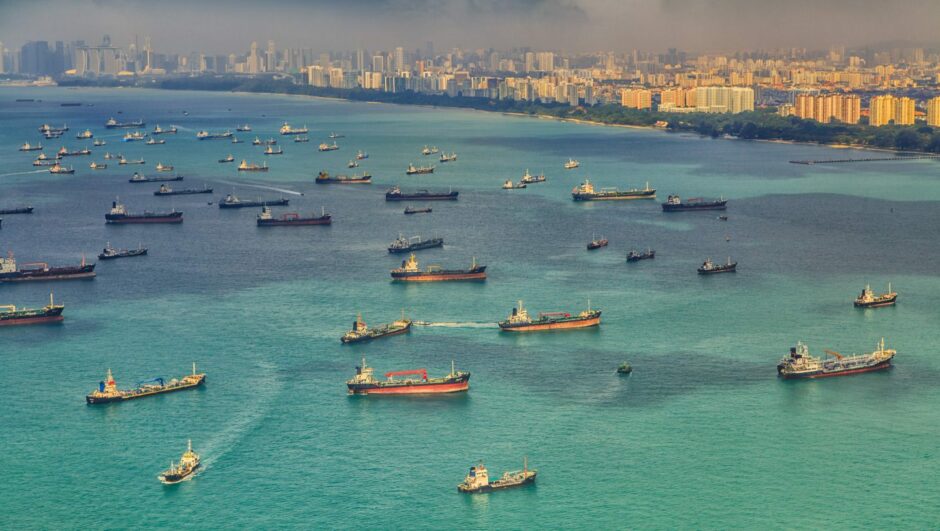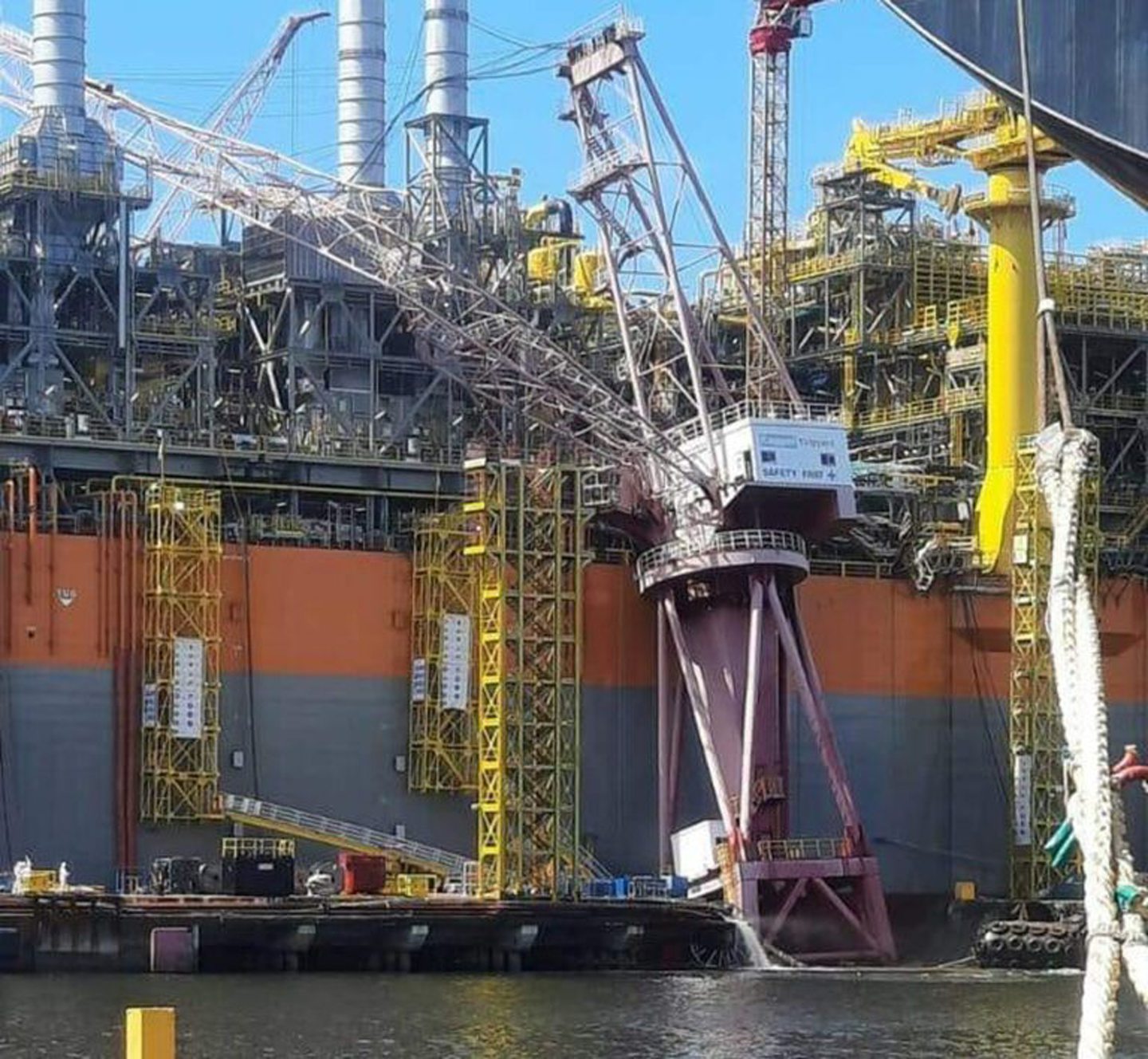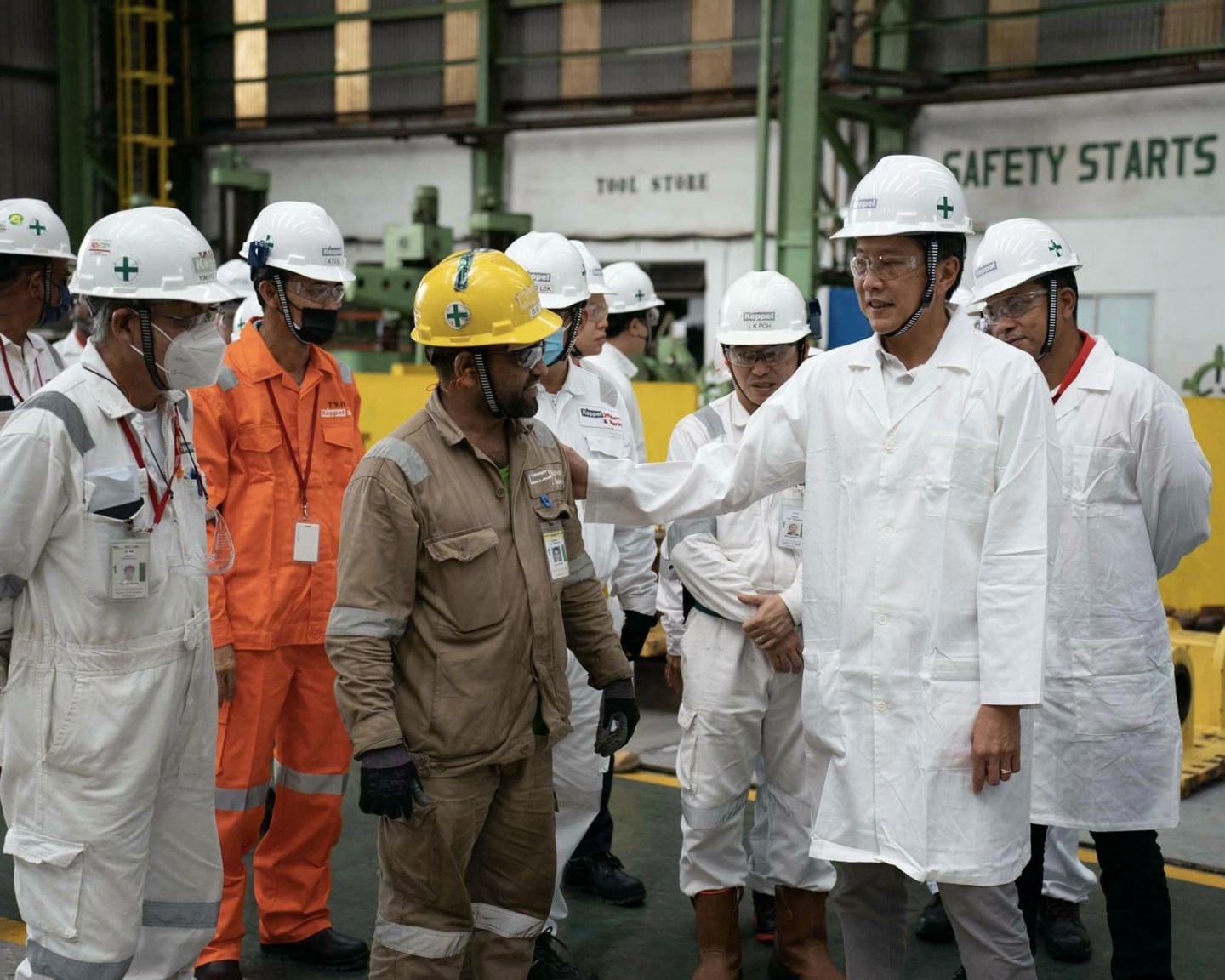
Three migrant workers have died so far this year in work-related accidents at a Singapore yard that services the global energy industry and is run by Keppel Corporation (SGX:BN4), whose clients include major international oil and gas companies.
Significantly, there is increasing concerns that migrant workers are particularly vulnerable in the Southeast Asia city state’s offshore and marine sector.
The latest death, confirmed on 24 August, happened after a Bangladeshi worker fell into the sea following the collapse of a pier at Keppel Shipyard yard that sent a crane into the SBM Offshore-built Prosperity floating production storage and offload vessel (FPSO). The FPSO was undergoing fit out ahead of deployment to an ExxonMobil-led project off Guyana. Three other workers- two Bangladeshis and one Chinese national – were also injured in the accident.
Official investigations into the cause of the accident are ongoing and Keppel had no comment.
In April, two Bangladeshi workers also died at Keppel Shipyard after being thrown from a scaffold structure that slipped while working on a vessel at a dry dock. Meanwhile, in 2020, another worker was killed by a falling rudder at Keppel’s drydocks.
In late August, the Migrant Workers Centre – an NGO supported by the Singaporean Trades Union Congress – said it was “gravely concerned” that accidents seem to be rising and urged “migrant brothers and sisters to look out for one another and come forward to report any potentially unsafe work practices.”
During the pandemic, Singapore closed its borders, or severely restricted the movement of foreign workers, which affected the availability and quality of skilled manpower. As a result of the lengthy restrictions, the yards were not able to keep all their experienced staff and new workers may lack necessary experience, an industry source told Energy Voice.
Crucially, the spate of fatal accidents at Keppel’s yard, which have grabbed international headlines, could tarnish Keppel’s global image as a respected yard in the energy sector. Nevertheless, international clients are likely to keep using the yard, as Singapore’s Ministry of Manpower is taking measures to address the country’s health and safety culture, coupled with Keppel’s promises to carry out a thorough review and implement lessons learned.
“Shipbuilding and conversions are a dirty and dangerous business, but I would trust Singapore and South Korea, to be open on their reporting and more serious in their efforts to address issues compared to places such as China any day,” a shipping professional told Energy Voice.
Still, industry observers fear that fatal accidents will persist in Singapore’s yards.
“My view is that with Keppel it is form over function. By that I mean the companies that get equipment and facilities built by Keppel want to see strong processes and standards. But these are not the same as keeping people alive,” a senior executive at an international oil and gas company told Energy Voice.
“For as long as I have been around the region – over 30 years – Singapore has made money off labour from places such as Nepal, Bangladesh, Vietnam, and others, such as Thailand. The labour is cheap and the contractors who bring in the labour do not care,” added the executive.
“Two things must change. There needs to be real financial consequences when mishaps occur, from government and the customers. And the companies that hire these yards need to be sincere in their decisions and vetting processes,” said the source.
In response to the rise in workplace fatalities this year, Singapore’s Ministry of Manpower (MOM) has implemented a new “Heightened Safety” period from 1 September 2022 to 28 February 2023. As of 1 September, across all sectors the number of workplace fatalities stood at 36 for 2022. This is very close to the 37 fatalities recorded in the whole of 2021.
The MOM said that it recognises that “some sectors are still recovering from the impact of the COVID-19 pandemic and that many companies are catching up on delays in projects, while others are expanding their operations as the economy reopens. Nevertheless, safety must remain a priority for all employers.”
The MOM aims to instill a strong safety culture and implement good safety practices, saying that companies which fall short on safety will be increasingly held accountable.
 © Supplied by Hemanth Reddy/Faceb
© Supplied by Hemanth Reddy/Faceb © Supplied by Migrant Workers' Cen
© Supplied by Migrant Workers' Cen